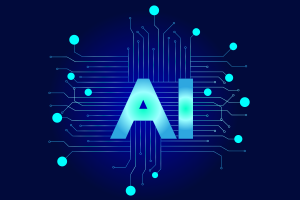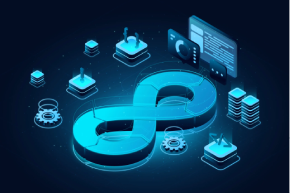Overcoming Challenges in Migrating Legacy Apps to K8s
Published on
by

In the ever-evolving landscape of cloud computing, the migration to Kubernetes has become a pivotal component of modern DevOps practices. However, this transition isn’t without its hurdles, especially when dealing with legacy applications. In this article, we’ll explore the challenges associated with migrating legacy applications to Kubernetes, all while navigating the vast terrain of cloud computing and embracing the principles of DevOps.
The Cloud Computing Paradigm
Cloud computing has revolutionized the way organizations manage their IT infrastructure. The ability to scale resources on-demand, optimize costs, and enhance overall agility has made the cloud an indispensable asset for businesses. Embracing cloud computing is often a strategic move that aligns with DevOps principles, facilitating faster development and deployment cycles.
Migration to Kubernetes: A DevOps Imperative
Kubernetes, as a container orchestration platform, plays a pivotal role in the DevOps ecosystem. Its ability to automate application deployment, scaling, and management makes it an ideal choice for teams aiming to streamline their operations and achieve continuous integration and continuous delivery (CI/CD). But, when it comes to legacy applications, this migration presents several challenges that need to be carefully addressed.
1. Compatibility and Refactoring:
Legacy applications are often built using outdated technologies and architectures that are not inherently compatible with containerization and Kubernetes. This necessitates extensive code refactoring, which can be time-consuming and error-prone.
Solution: Implement a phased approach to refactoring, breaking down the monolithic legacy app into microservices over time. This aligns with DevOps practices of iterative development and continuous improvement.
2. Data Management:
Migration to Kubernetes without data loss or security breaches is a complex undertaking. Ensuring data continuity while transitioning to containerized environments is crucial.
Solution: Utilize cloud-native databases and storage solutions, which seamlessly integrate with Kubernetes. This approach maintains data integrity and accessibility while adhering to DevOps principles of automation and scalability.
3. Security Concerns:
Legacy applications often lack modern security practices and may not be designed with containerization and microservices in mind, making them susceptible to vulnerabilities in a Kubernetes environment.
Solution: Enforce robust security measures within your DevOps pipeline. Implement container scanning, security policies, and best practices to safeguard the application during migration and in production.
4. Skill Gaps:
Adopting Kubernetes requires a different skill set compared to traditional IT operations. Bridging the knowledge gap among your DevOps team members is essential for a smooth migration process.
Solution: Invest in DevOps Consulting company or training programs focused on Kubernetes and containerization technologies. Collaborate with external experts like us to accelerate knowledge transfer.
5. Application Dependencies:
Legacy applications often have intricate interdependencies with other systems, posing challenges in isolating and migrating them to Kubernetes without causing disruptions.
Solution: Thoroughly map application dependencies, prioritize migration based on criticality, and establish fallback mechanisms to minimize disruptions while adhering to DevOps principles of reliability and fault tolerance.
Conclusion: Navigating the Cloud Computing Landscape with DevOps
Migrating legacy applications to Kubernetes in the era of cloud computing is undoubtedly challenging, but the rewards are significant. Embracing DevOps principles throughout this journey ensures that your organization can leverage the full potential of Kubernetes, the cloud, and modern development practices. By addressing compatibility, data management, security, skill gaps, and application dependencies, you can overcome these challenges and propel your legacy applications into the cloud-native, DevOps-driven future.
We at TechEnhance (team of experienced people) can help your company navigate and successfully migrate your applications to Kubernetes, ensuring a smooth transition to modernized infrastructure.


